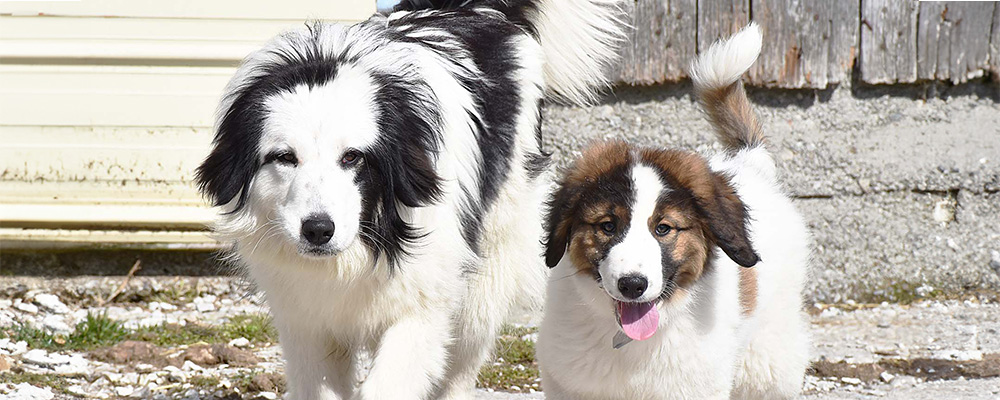
Tornjak
Health
Tornjaks are relatively hardy dogs with a short list of known health concerns. However, the few health problems they do face can have huge impacts on their quality of life and life spans.
GDV or Bloat
Gastric Dilatation-Volvulus, more commonly known as “bloat”, is a rapidly progressing, life-threatening condition that can affect all large dogs. Bloat is an immediate medical emergency that can result in death within hours of onset. This condition arises when the stomach twists on itself, blocking the entry and exit from the gut. This “twist” cuts off circulation to internal organs and results in a build up of gas, hence the term “bloat”.
The signs for GDV can be easily overlooked but knowing them may help save your Tornjak’s life. If they are pacing uncomfortably, always check their stomach to see if it seems painful or tight. If your dog seems to be attempting to vomit but nothing is coming up, this is a red flag that they are trying to get rid of the gas trapped in their stomach but are unable to do so. If you suspect bloat, do not hesitate to take your dog to the nearest emergency vet.
Veterinarians are beginning to believe there is a strong genetic component to GDV, but due to the seriousness of the condition, preventative measures are still recommended. Restricting physical activity after eating is thought to help prevent bloat. Feeding smaller, more frequent meals throughout the day may help as well. Avoid feeding with elevated dog bowls as these encourage gulps of air to enter the stomach with each bite.
Hip and Elbow Dysplasia
Hip and elbow dysplasia are joint deformities that can seriously impact your dog’s quality of life. They can be very painful, cause lameness or even prevent dogs from walking. In general, large breed dogs are at risk for developing hip and elbow dysplasia and unfortunately, Tornjaks are no different.
These conditions are particularly concerning for livestock guardian breeds. Guardian dogs, with their substantial frames, depend on the soundness of their hips and elbows to perform their essential duties of protecting livestock and property. Hip and elbow dysplasia can not only prevent them from doing their jobs, but potentially lead to a shortened lifespan due to pain.
To mitigate the risk of hip and elbow dysplasia in Tornjaks, responsible breeding practices are crucial. Breeders should conduct appropriate screenings to ensure the soundness of the breeding pair and only breed dogs with healthy joints. Additionally, providing proper nutrition to control growth during the puppy stage can help reduce the likelihood of these orthopedic issues. Regular exercise and weight management are also essential to maintaining the joint health of these magnificent guardian dogs, allowing them to continue their work in protecting livestock and property.
